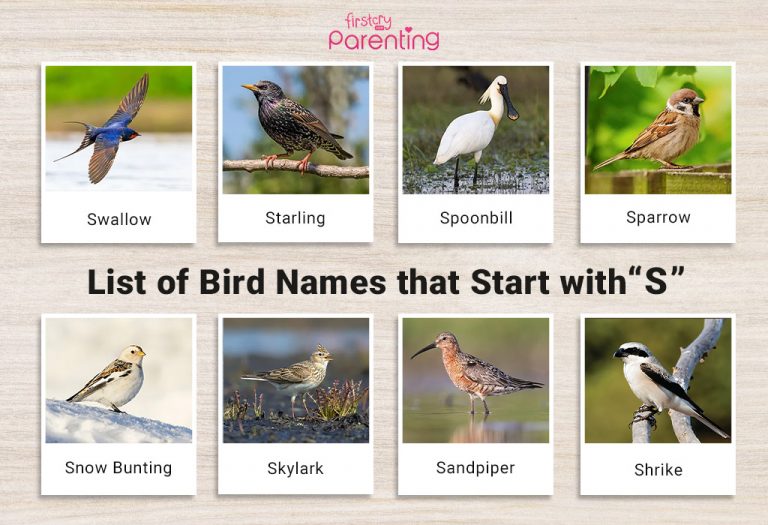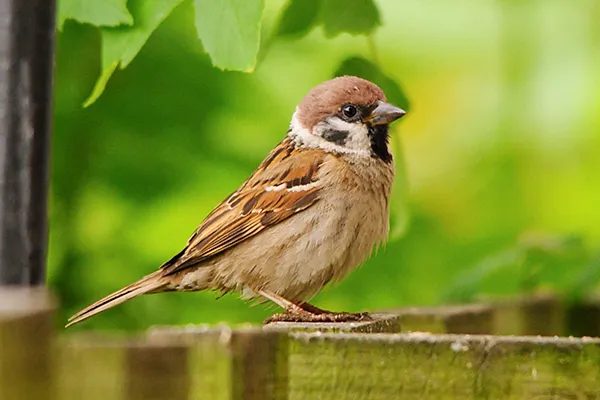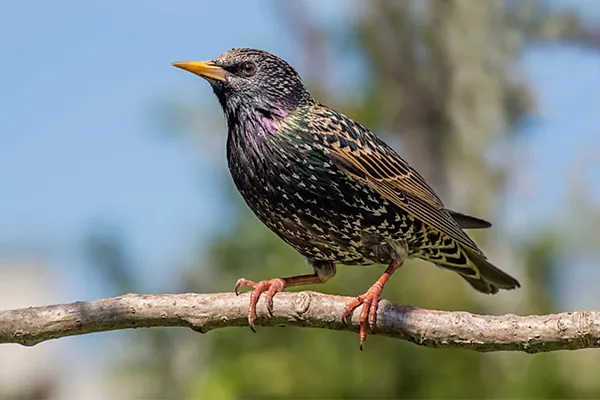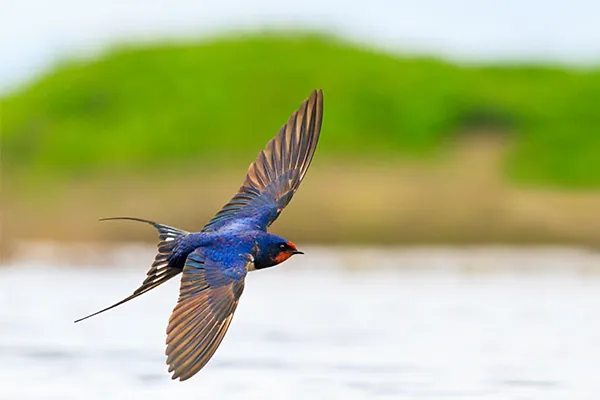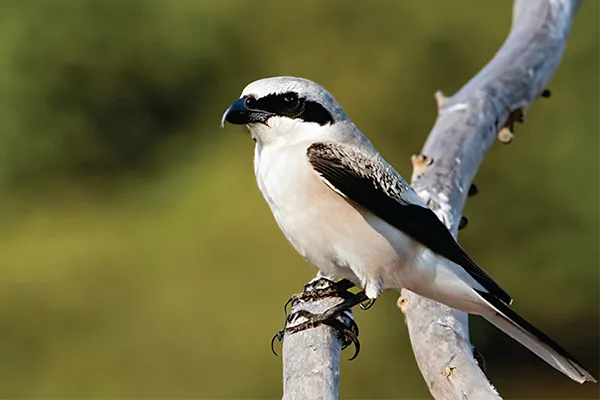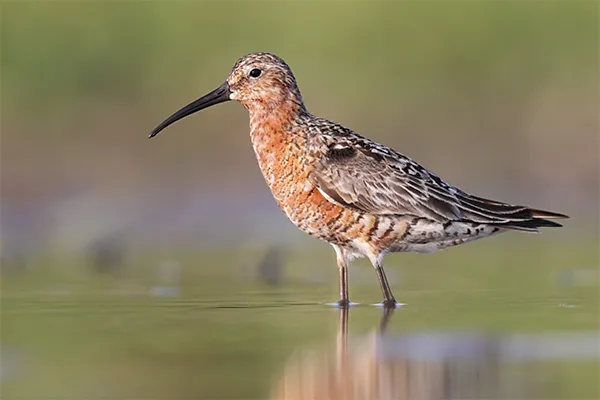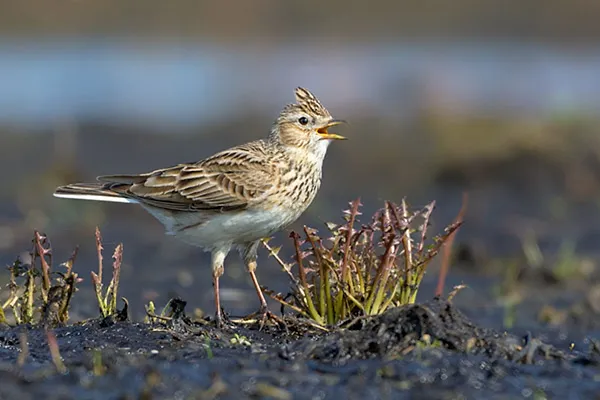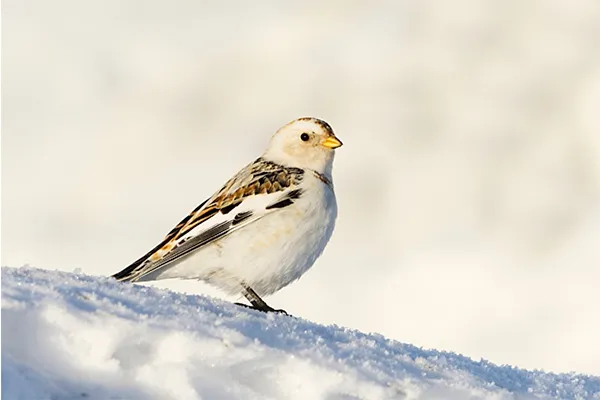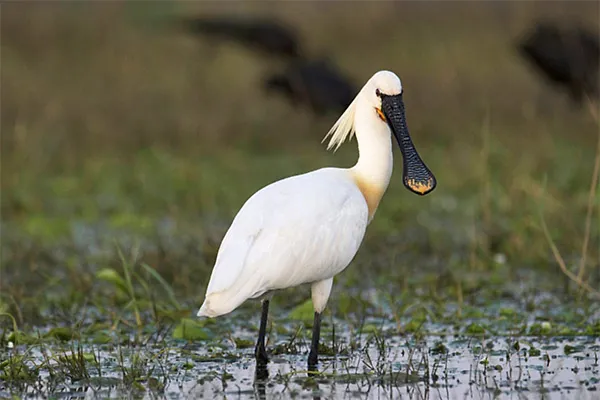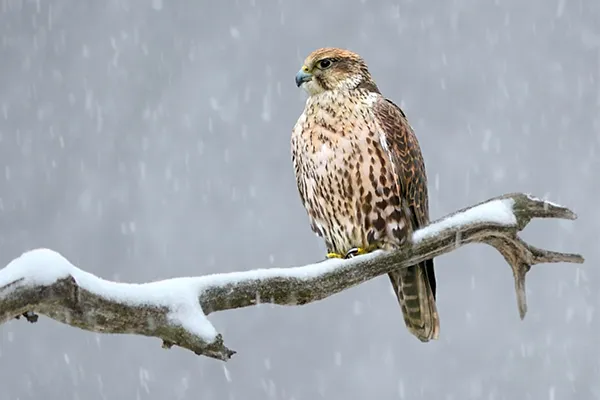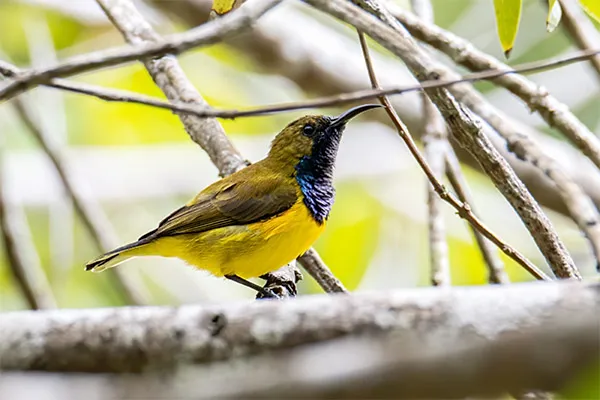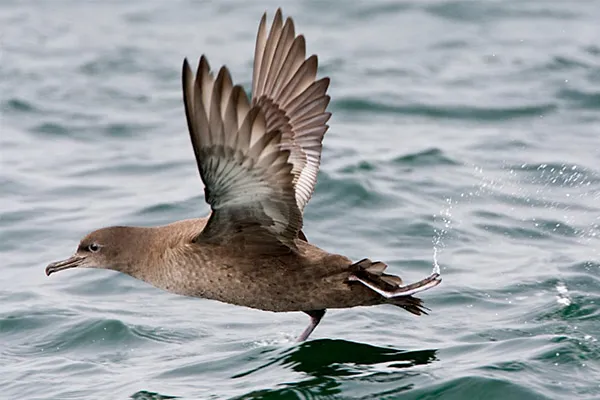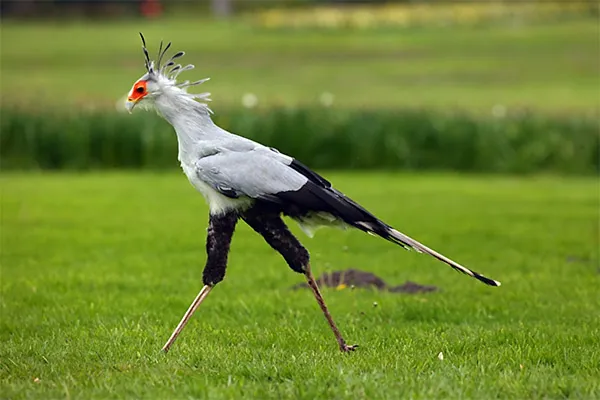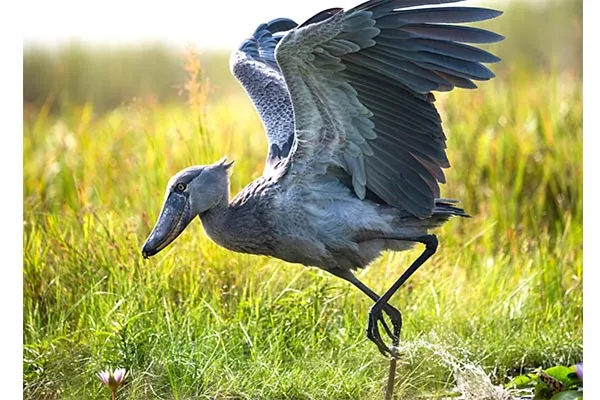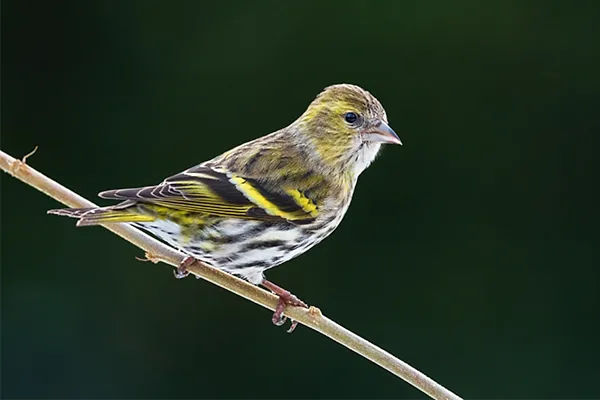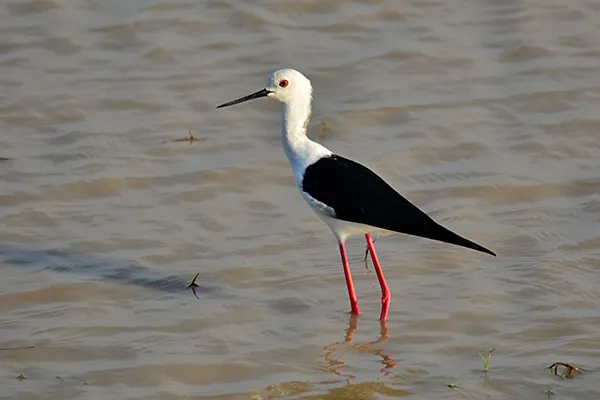List of Birds That Start With S
When we delve into the vibrant world of birds, we discover a myriad of captivating species, each with its unique characteristics and charm. For all those enthusiasts out there, whether you’re a parent trying to improve your kids’ vocabulary or a teacher prepping for an exciting classroom session, there’s a treasure trove of bird names that start with the letter S. This comprehensive list is tailored not just for the experienced bird watchers among us but also serves as an excellent resource of S letter bird names for preschoolers and kids. So, let’s spread our wings and take flight into the world of these feathered wonders.
List of Common Birds That Start With S
The avian world is vast, with species that captivate our hearts and imagination. In this section, we’re zeroing in on some common birds beginning with the letter S. From colourful swimmers to agile fliers, get ready to discover the magic of these bird names with S.
1. Sparrow
Scientific Name: Passeridae
Where It Is Found: Almost everywhere around the world, especially in urban areas.
Sparrows are small, plump, and brown-grey birds with short tails and stubby, powerful beaks. Their pleasant chirping often signals the beginning of a new day in many urban settings. Sparrows feed mostly on seeds but will also consume small insects.
Interesting Facts
- Sparrows are known to engage in dust baths, wherein they dig a hole and then flick dirt and dust over their bodies with rapid wing beats.
2. Starling
Scientific Name: Sturnus vulgaris
Where It Is Found: Native to Eurasia but has been introduced in many parts of the world.
Starlings display a sleek black gloss, and upon closer inspection, one might notice their coats speckled with white, especially during winter. They have a sharp, chattering call and often move in large, mesmerising flocks, especially at dusk.
Interesting Facts
- Starlings are known to mimic various sounds, from other birds’ calls to man-made noises!
3. Swallow
Scientific Name: Hirundinidae
Where It Is Found: Across the world, often near water and open plains.
Swallows are agile fliers with a dart-like appearance. They possess long, pointed wings and often display a mix of glossy blue backs with cream or reddish underparts. These birds are insectivores, catching bugs mid-flight.
Interesting Facts
- Swallows are renowned for their incredible migratory patterns.
- Some species travel thousands of miles between breeding and wintering grounds!
4. Shrike
Scientific Name: Laniidae
Where It Is Found: Europe, Asia, and Africa.
Shrikes are predatory songbirds known for their habit of catching insects and small vertebrates and impaling their bodies on thorns. This macabre behaviour has earned them the nickname “butcher birds.” They usually have grey, black, and white markings.
Interesting Facts
- Despite their small size, shrikes are fierce predators. They use thorns or barbed wire to store and display their catches.
5. Sandpiper
Scientific Name: Scolopacidae
Where It Is Found: Worldwide, especially near water bodies like shores and marshes.
Sandpipers have long legs and bills, which they use to probe the sand or mud for invertebrates. Their mottled brown appearance makes them blend seamlessly with their surroundings.
Interesting Facts
- The wings of many sandpipers produce a unique sound due to their specialised primary feathers.
6. Skylark
Scientific Name: Alauda arvensis
Where It Is Found: Europe and across the Palearctic region.
Skylarks are small, brown birds known for their extraordinary singing ability. They possess a straight bill and streaked back. Their undulating flight, often going very high, is complemented by their beautiful song which fills the air.
Interesting Facts
- Skylarks can sing non-stop for more than an hour and often do so while hovering in mid-air, a behaviour that’s fascinating to watch.
7. Snow Bunting
Scientific Name: Plectrophenax nivalis
Where It Is Found: Arctic regions and the northern parts of North America and Eurasia.
Snow buntings are delightful birds with white and black plumage that offer perfect camouflage against snowy terrains. In summer, males exhibit a dark, contrasting plumage that stands out.
Interesting Facts
- During harsh winters, Snow Buntings have been known to burrow into the snow to sleep!
8. Spoonbill
Scientific Name: Platalea
Where It Is Found: Wetlands around the world, including parts of Asia, Europe, and the Americas.
As their name suggests, Spoonbills have long, flat, spoon-shaped bills that they use to sift through the mud to find their food. These large birds are mostly white, with some species showcasing beautiful pink or yellow tones.
Interesting Facts
- The peculiar shape of their bill is not just for show. Spoonbills use a side-to-side motion with their beaks in water, which helps them detect small aquatic creatures.
9. Saker Falcon
Scientific Name: Falco cherrug
Where It Is Found: Eastern Europe to Western China.
The Saker Falcon is a large, strong bird of prey with variable plumage. Typically, they showcase grey-brown backs with lighter underparts. Renowned for their incredible speed and agility, they often hunt by horizontal pursuit, unlike the stooping method of other falcons.
Interesting Facts
- The Saker Falcon is highly valued as a hunting bird in the Middle East, and its status symbolizes cultural importance in several countries.
10. Sunbird
Scientific Name: Nectariniidae
Where It Is Found: Africa, Asia, and South Pacific.
These small, brightly coloured birds have slender bills adapted for feeding on nectar. They flit from flower to flower, resembling hummingbirds, though they are not closely related.
Interesting Facts
- Despite their primary nectar diet, Sunbirds also consume insects and spiders, especially when feeding their young.
11. Shearwater
Scientific Name: Puffinus
Where It Is Found: Oceans worldwide, especially in open seas away from land.
Shearwaters have a sleek body with long wings that allow them to glide effortlessly over ocean waves. They are primarily grey or brown and are known for their mystical wailing calls during the night when they are near their nesting colonies.
Interesting Facts
- Shearwaters possess an extraordinary sense of smell, a rarity among birds. This olfactory ability helps them locate food even in the darkest, foggiest conditions.
12. Secretary Bird
Scientific Name: Sagittarius serpentarius
Where It Is Found: Open grasslands of sub-Saharan Africa.
Standing tall with long legs, the Secretary Bird has an imposing presence. It has black feathers on its eagle-like head and thighs, but its body is mostly grey. With a unique blend of raptor and crane-like appearance, it’s an unmistakable sight.
Interesting Facts
- This bird is named for its quill-like crests on the back of its head that resemble 18th-century clerks with quill pens tucked behind their ears.
- It’s also known for its ability to hunt snakes, even venomous ones!
13. Shoebill
Scientific Name: Balaeniceps rex
Where It Is Found: Freshwater swamps of central tropical Africa.
With a prehistoric appearance, the Shoebill stands out with its large, shoe-shaped bill. Its body is mainly grey, and its eyes are set forward on its face, giving it a rather intense stare.
Interesting Facts
- The Shoebill’s bill is not just for show. It’s used to capture and hold onto large prey like lungfish, water snakes, and even baby crocodiles!
14. Siskin
Scientific Name: Carduelis spinus
Where It Is Found: Woodlands and gardens across northern Europe and Asia.
Siskins are small finches with a distinctive forked tail and a long, narrow bill. Males are vibrantly coloured with streaky yellow-green bodies and a black crown and face.
Interesting Facts
- Siskins are very sociable birds. Outside the breeding season, they often form large flocks and can be seen feeding together with other finch species.
15. Stilt
Scientific Name: Himantopus himantopus
Where It Is Found: Shallow wetlands in warm regions worldwide.
Recognized instantly by their extremely long legs, Stilts have a sleek black-and-white appearance. They wade in shallow waters, using their long bills to pick up food.
Interesting Facts
- The Stilt’s legs are not just for wading; they also serve a thermoregulatory function. By adjusting the amount of blood flowing to their legs, they can control their body temperature.
And the list goes on, with many more bird names with ‘S’ waiting to be explored and admired. Every bird, with its unique traits and habits, adds to the rich tapestry of our natural world.
Other Birds Beginning With S
While we have delved deep into some of the more common and notable birds that start with the letter ‘S’, there’s an even broader spectrum of these avian wonders awaiting discovery. From every corner of the globe and from every habitat, here’s a list of other fascinating birds whose name starts with the letter S, ready to pique your curiosity.
- Saddle-billed Stork
- Saipan White-eye
- Sakeret
- Salim Ali’s Swift
- Salvadori’s Pheasant
- Samoan Fantail
- San Blas Jay
- Sanderling
- Sandwich Tern
- Santa Cruz Ground Dove
- Sapphire Quail-Dove
- Sapphire-rumped Parrotlet
- Sarus Crane
- Satin Bowerbird
- Saunders’s Gull
- Savai’i Honeyeater
- Savannah Sparrow
- Scaly-breasted Munia
- Scaly-naped Pigeon
- Scarlet Flycatcher
- Scarlet Tanager
- Scarlet-headed Blackbird
- Scarlet-shouldered Parrotlet
- Schlegel’s Asity
- Schrenck’s Bittern
- Scissor-tailed Flycatcher
- Scottish Crossbill
- Scrub Euphonia
- Scrub Greenlet
- Scrub Robin
- Scuba Shearwater
- Sedge Wren
- Semicollared Hawk
- Seychelles Magpie-Robin
- Seychelles Sunbird
- Shaft-tailed Whydah
- Shikra
- Shining Bronze-Cuckoo
- Short-billed Minivet
- Short-eared Owl
- Short-legged Ground Roller
- Short-tailed Hawk
- Short-tailed Shearwater
- Siberian Thrush
- Sierra Leone Prinia
- Silky-tailed Nightjar
- Silver Oriole
- Silver-backed Butcherbird
- Silver-throated Tanager
This vast array of birds, each with its distinctive traits, reminds us of the endless diversity in the world of avians. Whether you’re just starting on a journey of birdwatching or looking to expand your knowledge, every bird that starts with the letter ‘S’ offers a unique story and an opportunity for exploration.
FAQs
1. What’s the most common bird starting with ‘S’ in North America?
The Sparrow is among the most commonly spotted birds in North America, with multiple species like the House Sparrow and Song Sparrow gracing various habitats.
2. Are there any flightless birds that start with the letter ‘S’?
Yes, the Southern Cassowary and the Snares Penguin are examples of flightless birds that begin with ‘S’.
3. Which ‘S’ bird is known for its elaborate courtship dance?
The Satin Bowerbird is renowned for its intricate courtship rituals, which include decorating its bower with blue items to attract a mate.
4. Are there any nocturnal birds that start with ‘S’?
Yes, the Short-eared Owl and the Scissor-tailed Nightjar are both nocturnal birds that begin with the letter ‘S’.
5. Do any birds beginning with ‘S’ have a symbiotic relationship with other animals?
Sunbirds, much like hummingbirds, have a mutualistic relationship with certain flowers. The bird gets nectar, its primary food source, while the flower gets pollinated.
In the vast world of avians, birds that start with the letter ‘S’ offer a delightful spectrum of species, each brimming with unique tales and characteristics. From the serenading Skylark to the statuesque Secretary Bird, these feathered wonders enrich our ecosystems and ignite our imaginations.
Birds Names That Begin With (A to Z)
| A | B | C | D | E | F | G | H | I |
| J | K | L | M | N | O | P | Q | R |
| S | T | U | V | W | X | Y | Z |
Was This Article Helpful?
Parenting is a huge responsibility, for you as a caregiver, but also for us as a parenting content platform. We understand that and take our responsibility of creating credible content seriously. FirstCry Parenting articles are written and published only after extensive research using factually sound references to deliver quality content that is accurate, validated by experts, and completely reliable. To understand how we go about creating content that is credible, read our editorial policy here.





